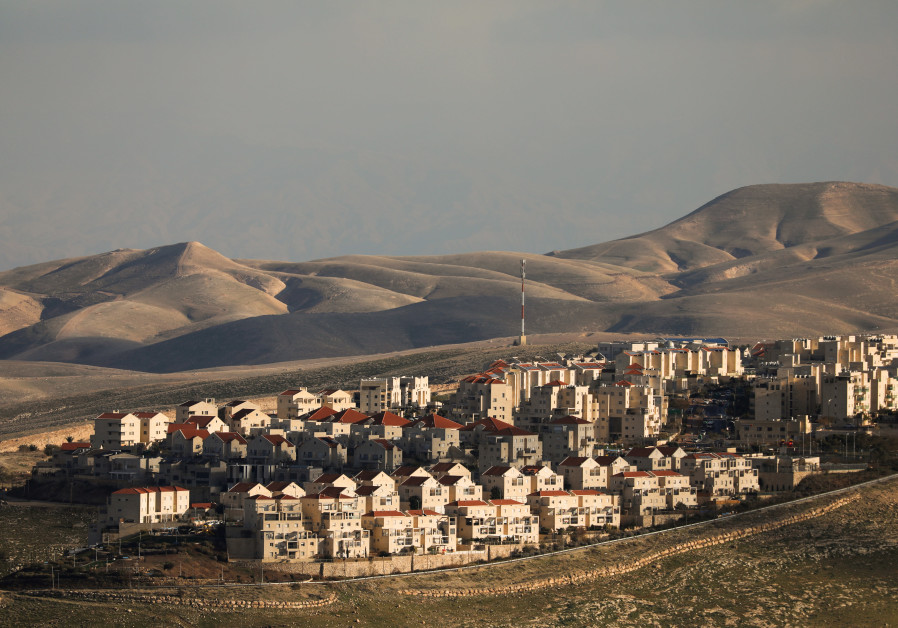Peace Now: Israel advanced plans for 2,304 settler homes

A general view picture shows houses in the Israeli settlement of Maale Adumim, in the West Bank February 15, 2017. (photo credit: AMMAR AWAD/REUTERS)
The European Union called on Israel to halt West Bank settlement activity after the Higher Planing Council for Judea and Samaria on Monday and Tuesday advanced plans for 2,304 new settler homes.
“All settlement activity is illegal under international law. It erodes the viability of the two-state solution and the prospects for a lasting peace.
“The EU expects the Israeli authorities to fully meet their obligations as an occupying power under International Humanitarian Law, and to cease the policy of settlement construction and expansion, of designating land for exclusive Israeli use, and of denying Palestinian development,” the EU said.
Out of those, plans for 1,466 units were deposited, which means they are in the initial stages of discussion, and 838 were validated, which means they were given final approvals, the left-wing NGO Peace Now reported.
Seventy percent of the units, according to the left-wing NGO, are for settlements considered to be isolated, located outside the route of the security barrier.
At one time Israel and the US had made a distinction between isolated settlements and settlement blocs. Isolated settlements were believed to be vulnerable to withdrawal in any future final-status agreement with the Palestinians. Israel in the past held that settlements blocs would be part of its final sovereign borders.
Under the Trump administration and the current Israeli government, no distinction is made between settlements on either side of the barrier. Earlier this week Prime Minister Benjamin Netanyahu visited the Efrat settlement and stated his oft-repeated slogan: no settler or settlement will be uprooted on his watch.
Among the more significant projects are almost 300 units for the small, isolated ultra-Orthodox settlement of Asfar, which is located in the Gush Etzion region. About 200 of the units that were deposited are for property within the settlement itself. In addition, the council legalized the adjacent Ibei Hanahal outpost as a new neighborhood of the settlement, approving in the process 96 new homes.
The Gush Etzion Regional Council sent out a congratulatory statement, noting that the approvals were proof that settlement development was a key part of the Netanyahu government’s agenda.
Regional council head Shlomo Ne’eman congratulated the prime minister on the impressive achievement and said he hoped such development would continue. Ne’eman noted the Asfar construction in particular, which he said would more than triple the size of the small community. Its population is close to 700, according to 2016 Central Bureau of Statistics data.
Peace Now condemned the moves.
“The approval of settlement plans is part of a disastrous government policy designed to prevent the possibility of peace and a two-state solution, and to annex part or all of the West Bank.”
It noted in particular the council’s approval of the Haroeh Haivri outpost as an educational institute with plans for 24 homes. Built in 2015, it is located near the illegal Bedouin herding village of Khan al-Ahmar, which the government wants to evacuate.
The council also authorized the Givat Salit outpost with plans for 94 homes, but held off on approving the Brosh outpost. It also delayed the approval of 207 homes in the Har Bracha settlement.
`; document.getElementById(“linkPremium”).innerHTML = cont; (function (v, i){ });





Comments are closed.